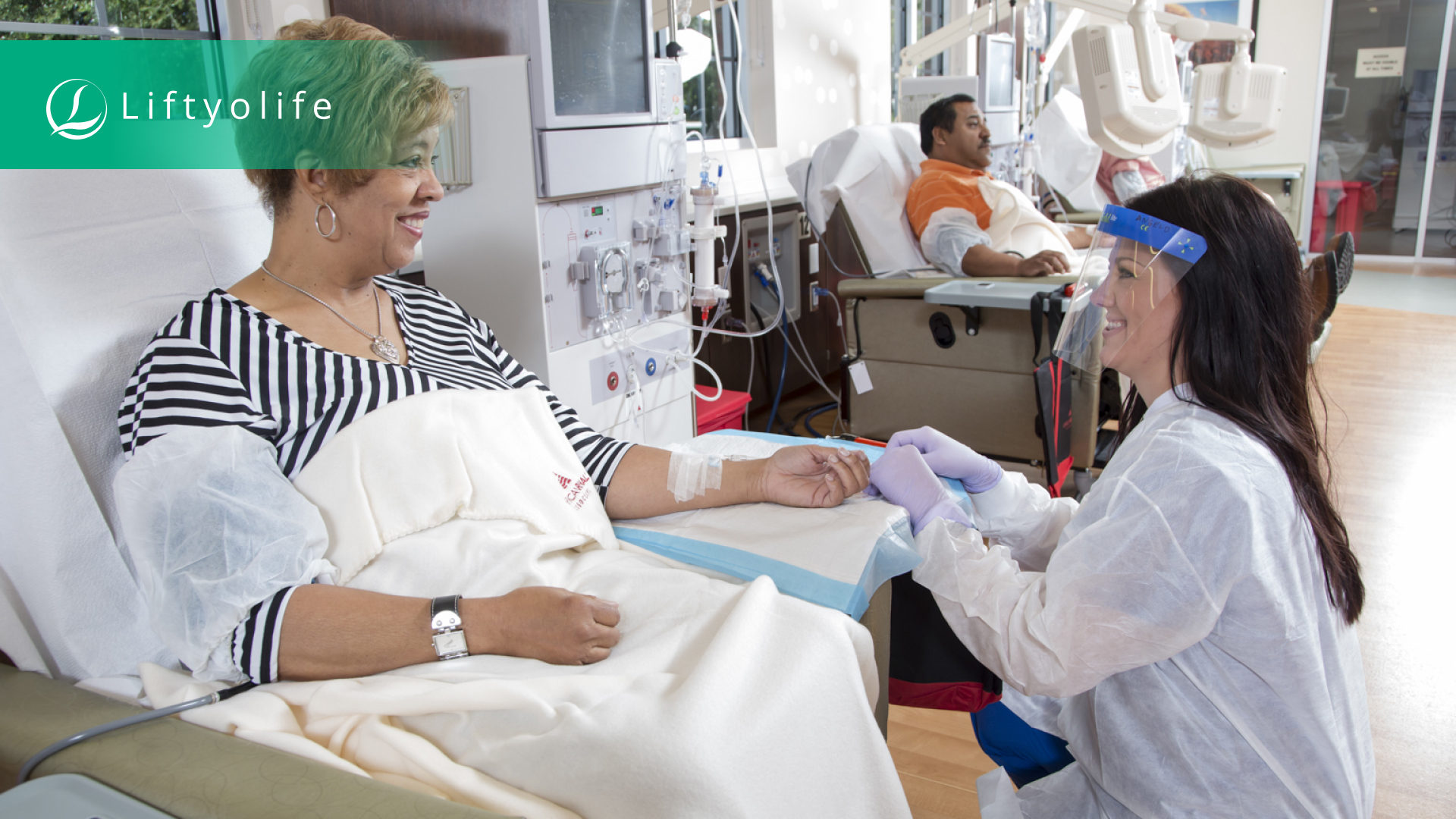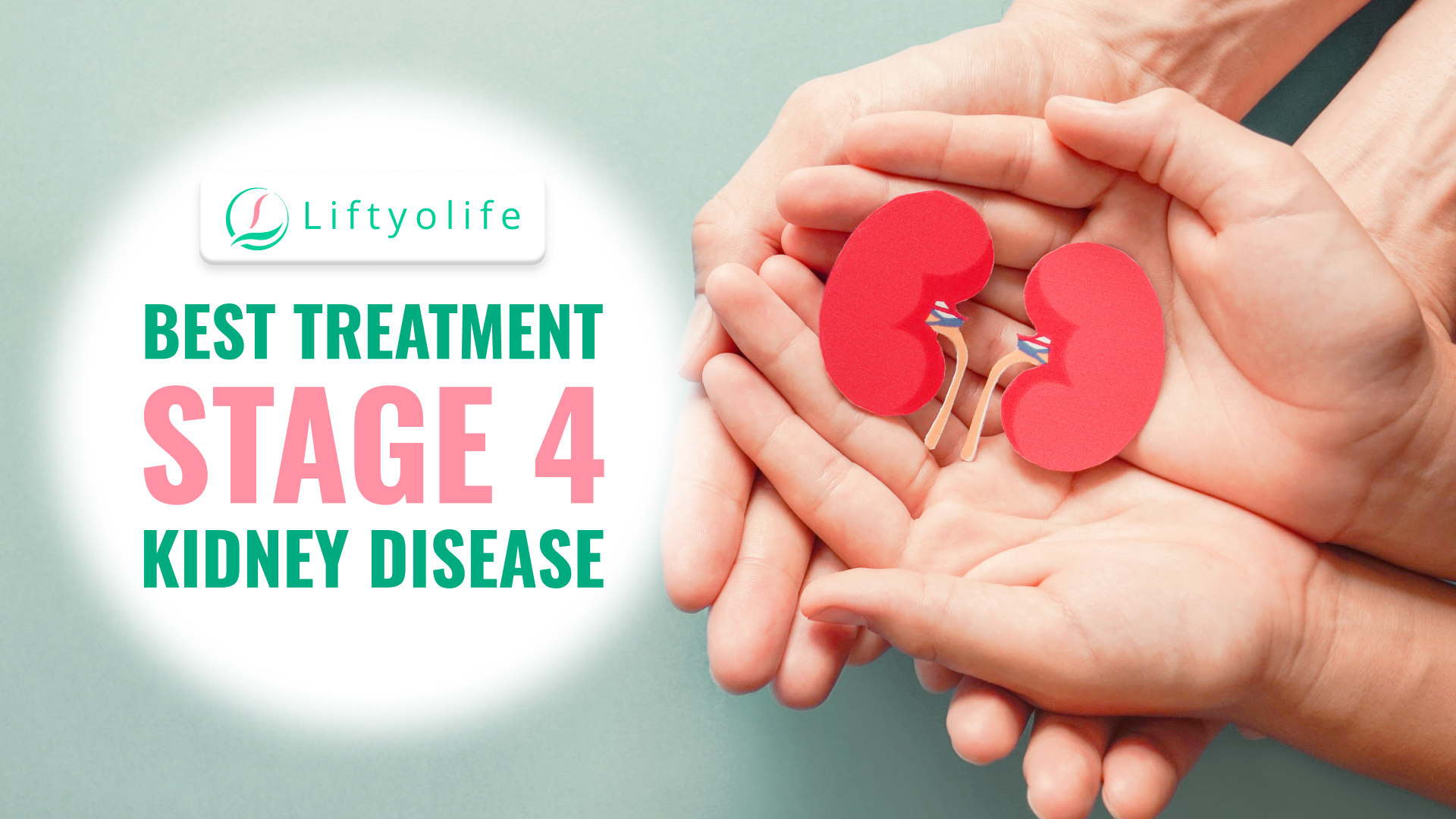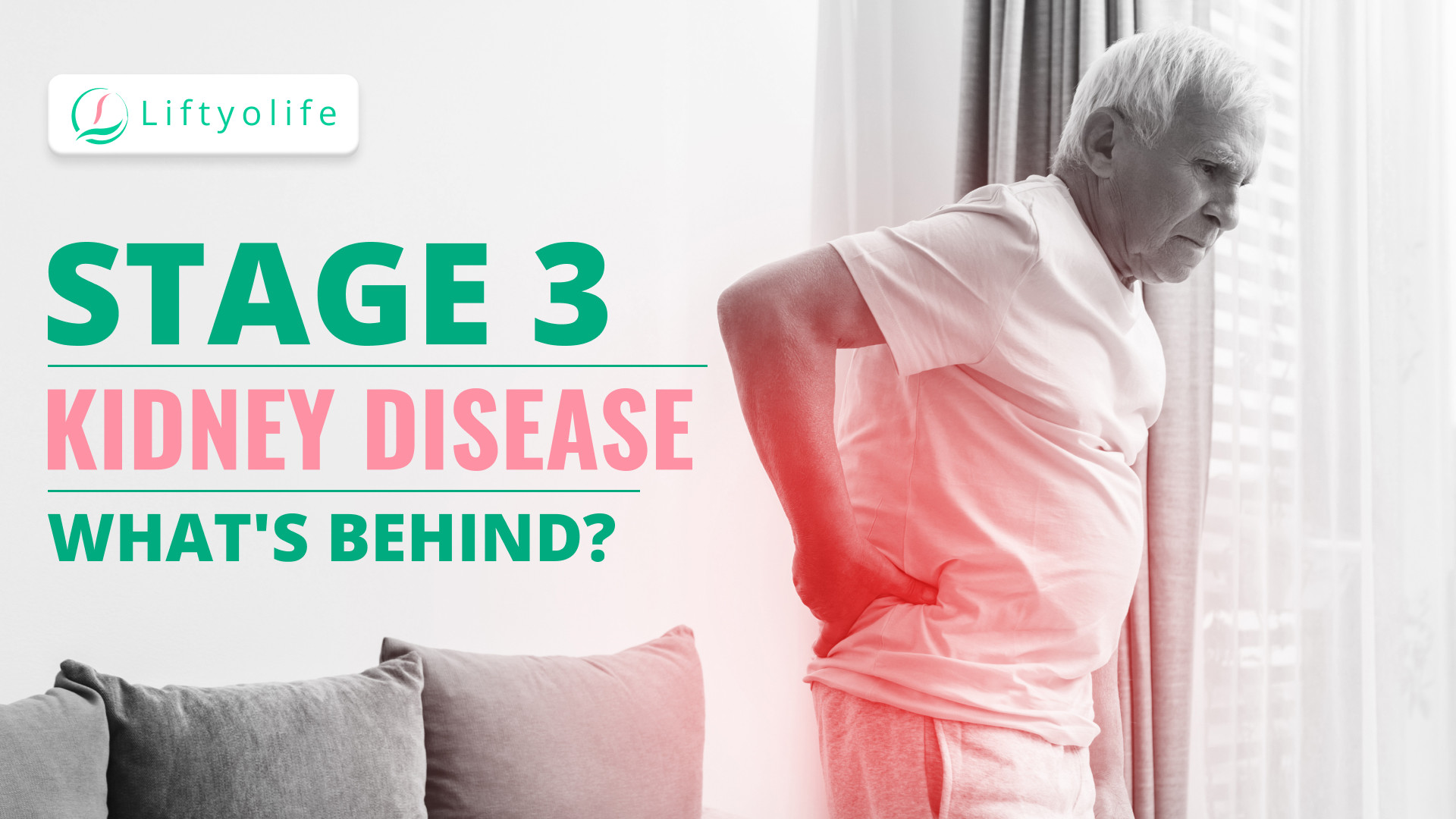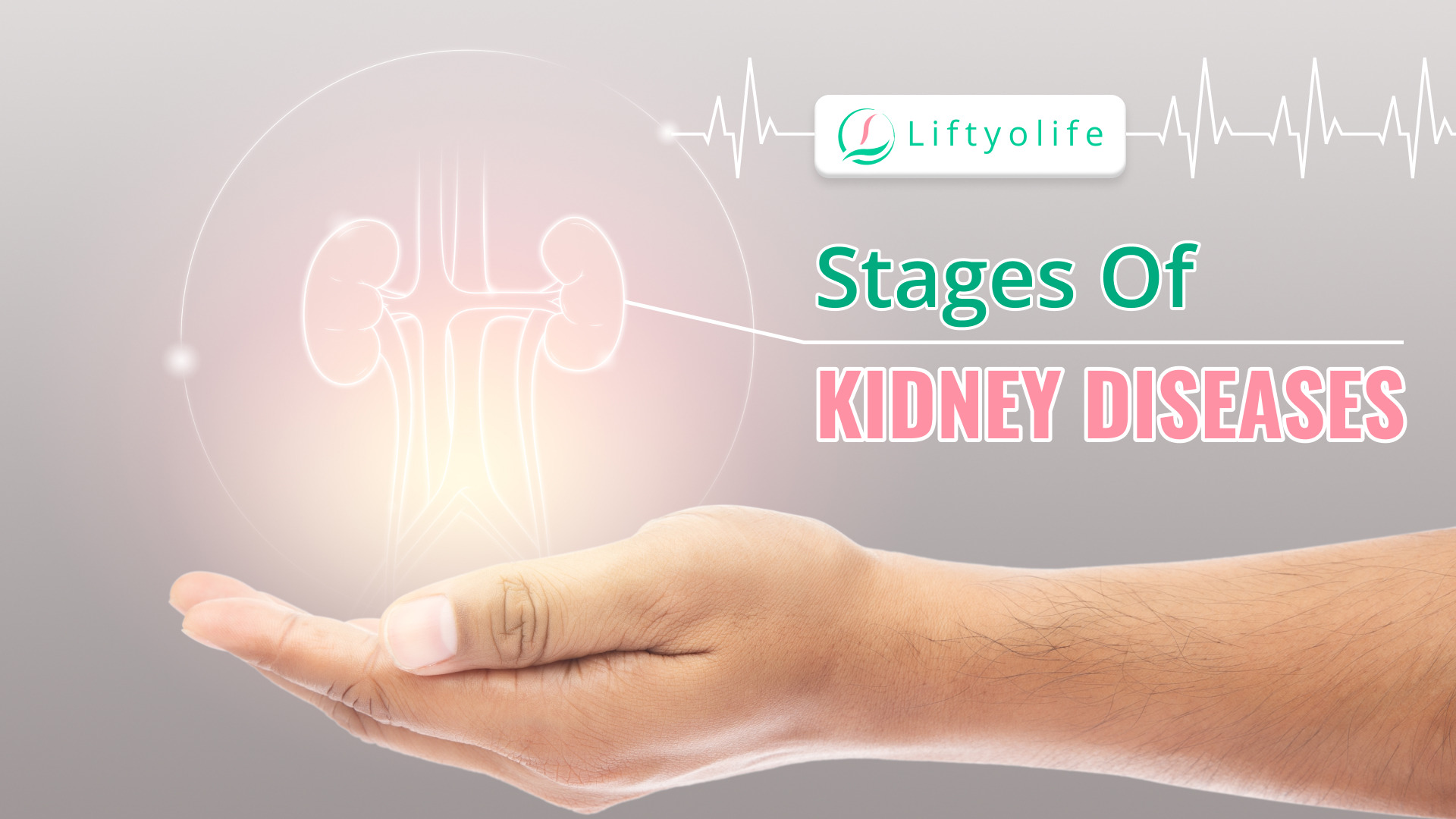Stage 5 Kidney Disease: Symptoms & Treatments

Is stage 5 kidney disease frightening? What if your kidney stopped working entirely? Don’t worry because statistics show that if you’re in stage 5 of this disease, you can still live for another 20 years with good dialysis treatment. Let’s go to Liftyolife (liftyolife.com) to learn more about this stage.
1. What is stage 5 kidney disease?
Stage 5 kidney disease (end-stage renal disease (ESRD)) means you have an eGFR of less than 15 and severe kidney damage. Your kidneys are on the edge of failing or have already failed (stopped working). Because your kidneys have stopped filtering waste from your blood, waste products accumulate in your body, making you very sick and causing other health problems. When your kidneys fail, you have two options for survival: dialysis or a kidney transplant.
Furthermore, the kidney’s other functions will cease to exist, including:
- Create the hormone (erythropoietin) that aids in the formation of red blood cells.
- Blood pressure control.
- Activate vitamin D to promote bone health.
2. Causes of stage 5 kidney disease
Hypertension and diabetes are two common causes of ESRD. Many kidney diseases attack the nephrons, the kidney’s tiny filtering units. This results in poor blood filtering, which leads to ESRD.
- Diabetes causes your body to be unable to properly break down glucose (sugar), resulting in high glucose levels in your blood. These high levels harm the nephrons.
- The increased blood pressure on the small vessels in your kidneys causes damage if you have hypertension. The injury prevents your blood vessels from doing their job of filtering blood.

Causes of stage 5 kidney disease
The following factors can also cause ESRD:
- long-term urinary tract obstruction caused by kidney stones, an enlarged prostate, or certain types of cancer,
- glomerulonephritis is an inflammation of the kidney’s filters,
- congenital abnormalities include vesicoureteral reflux, which occurs when urine flows into the kidneys,
- other inherited kidney diseases, such as polycystic kidney disease,
- prolonged urinary tract obstruction,
- a recurring kidney infection, also known as pyelonephritis.
3. What are the symptoms of end-stage renal failure?
As chronic kidney disease progresses to end-stage renal disease, the following signs and symptoms may appear:
- feeling less hungry than usual,
- appetite loss,
- vomiting or nausea,
- chest pain if fluid accumulates around the heart’s lining,
- headaches,
- weakness and exhaustion,
- inability to concentrate,
- uncontrolled hypertension (high blood pressure),
- itching,
- making little or no urine,
- reduced mental acuity,
- back pain in the lower back,
- swelling, particularly near the eyes and ankles,
- cramps in the muscles,
- breathing difficulties if fluid accumulates in the lungs,
- tingling sensations in the hands or feet,
- skin pigmentation.
The signs and symptoms of stage 5 kidney disease are frequently nonspecific and can be caused by other illnesses. Because your kidneys can compensate for lost function, signs and symptoms may not appear until irreversible damage has occurred.
4. Risk factors
Certain people are more likely to develop ESRD, such as those who have:
- diabetes,
- high blood pressure,
- frequent use of potentially harmful medications,
- tobacco use,
- older age,
- hypertension,
- relatives with ESRD,
- Black, Asian, Hispanic, Pacific Islander, or American Indian ancestry has a family history of kidney failure.

Risk Factors of stage 5 kidney disease
You are more likely to develop ESRD if you have any kidney condition that affects the structures of the glomeruli in the kidneys, such as:
- polycystic kidney disease (PKD),
- the Alport syndrome,
- certain autoimmune disorders, such as lupus,
- interstitial nephritis,
- pyelonephritis.
5. Complications
Stage 5 kidney disease complications include:
- Excessive fluid retention:
- swelling in your legs and arms,
- high blood pressure,
- fluid in your lungs (pulmonary edema).
- Anemia (low blood hemoglobin level).
- Hyperkalemia (increased blood potassium levels).
- Cardiovascular disease.
- Pericarditis.
- Reduced sex drive.
- Male erectile dysfunction.
- Osteomalacia (weakening of bones).
- Malnutrition.
- Damage to the central nervous system:
- difficulty concentrating,
- personality changes,
- seizures.
- Weak immune system: vulnerable to infection.
- Complications of pregnancy pose risks to both the mother and the developing fetus.
Kidney failure worsens and can become life-threatening if dialysis or a transplant are not used.
6. How is stage 5 kidney disease diagnosed?
Your healthcare provider ordered additional tests to determine the cause of your CKD. These tests may include:
- Urine tests: Determine the amount of protein albumin in your urine.
- Imaging tests: Ultrasound, magnetic resonance imaging, or computed tomography scans evaluate the kidneys and detect abnormalities.
- Blood tests: In stage 5 kidney disease, wastes such as creatinine and urea accumulate in the blood.
- Glomerular filtration rate (GFR) estimates kidney function. When the above tests reveal abnormalities, the GFR test is usually performed.
- Kidney biopsy: Doctors take a small piece of tissue from your kidneys to look at it under a microscope.
- Genetic testing: If doctors suspect a rare or hereditary disease.
Your healthcare provider wants to know if you have diabetes or heart problems. As a result, they may request tests such as:
- Urine sugar level test,
- Blood sugar test,
- Electrocardiography.
7. How is stage 5 kidney disease treated?

How is stage 5 kidney disease treated?
The best treatment for you is the one that makes the most sense for your unique lifestyle and health requirements. Your nephrologist will go over your treatment options with you, which may include:
- Kidney transplant: This is regarded as one of the most effective treatments for ESRD. A kidney transplant involves receiving a new, healthy kidney from a living or deceased donor. Keep in mind that you must be in good overall health, have a suitable donor match, and be at the right time.
- Dialysis is a life-extension treatment that filters your blood to remove unwanted toxins, waste products, and excess fluids. Dialysis is classified into two types: peritoneal and hemodialysis.
- Hemodialysis: A dialysis machine filters your blood to remove toxins, waste, and excess fluid. Blood enters the machine, is filtered, and returned to your body. Because your kidneys have entirely failed, the dialysis machine will perform the functions of your kidneys.
- Peritoneal dialysis: This method filters and cleans your blood by using the blood vessels in the lining of your abdomen as the body’s natural filter, in conjunction with a dialysate solution.
8. Prevention
Making healthy lifestyle choices to slow kidney disease progression:
- Stay positive and happy.
- Obtain and keep a healthy weight.
- Take your medications exactly as prescribed.
- Limit your protein intake and consume a well-balanced diet of nutritious, low-sodium foods.
- Be active every day.
- Maintain healthy blood pressure.
- Maintain a healthy blood sugar level.
- Check cholesterol levels once a year.
- Get regular checkups.
- Stop smoking or using tobacco products.
You have to experience treatment for stage 5 kidney disease. Dialysis will alter your daily routine and your lifestyle. If this is the case, seek professional help or positive support from family and friends. They can assist you in remaining engaged in your daily life, thereby maintaining a high standard of your living. In addition, to learn more about health care tips, visit Liftyolife (liftyolife.com).
==> Read More:






